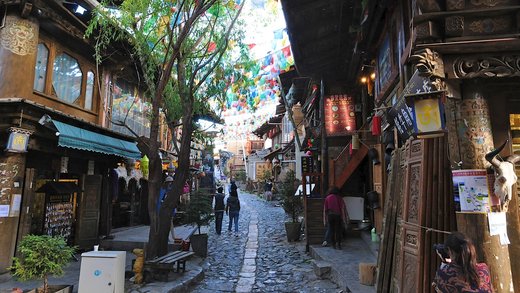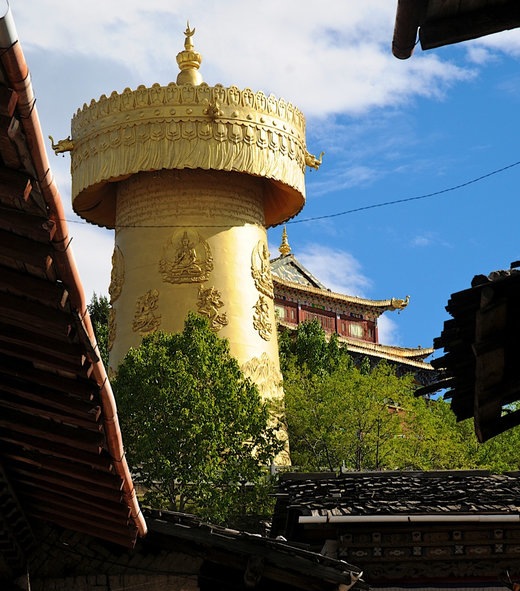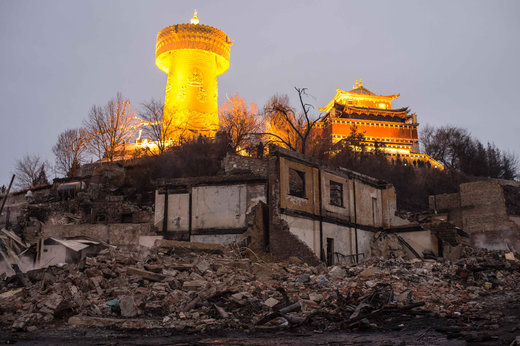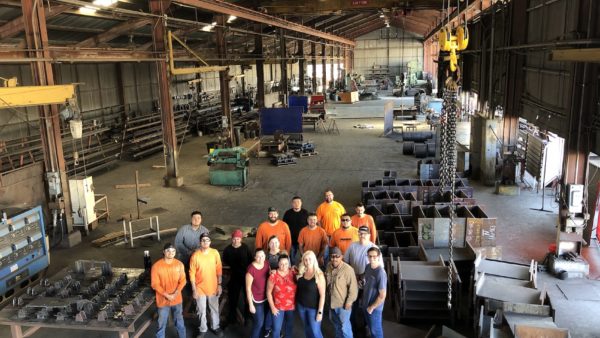25 February 2014
By Michael Brown in China

Theatre goers were horrified just days before Christmas, when part of the ornate ceiling of the Apollo Theatre in the heart of London’s theatre land collapsed onto a capacity audience enjoying the National Theatre’s production of A Curious Incident of the Dog in the Night-Time.
Nearly 80 people were injured, some seriously.
London’s media were quickly on the case and much of the following day’s news was taken up with the collapse. Speculation as to the cause was rife, most of which still was pure conjecture: heavy rain, lightning, thunder?
These old theatres (the Apollo was completed in 1901 and is Grade II listed) have served us well for a century or more. They are built with high, steep galleries. The Upper Circle is the highest and often referred to as ‘the gods’.
The steepness of the gallery is not for the faint-hearted, however even the cheapest seats were given a clear, unobstructed view of the action despite being some distance from the stage. No surprise many left traumatised as the fabric of London’s heritage became unstuck.

Street in ancient Dukezong before the fire of January 2014 (Michael Brown)
As a consequence the National Theatre will transfer its production elsewhere for commercial reasons. The loss to the Apollo will be in the millions.
Early on Saturday 4 January this year a far bigger tragedy occurred when a fire raged through the ancient Tibetan town of Dukezong in Yunnan province, China.
Dukezong was founded 1,300 years ago as a settlement on the old Tea-Horse Road. This was an ancient network of winding mule caravan paths that carried traders laden with locally-produced tea through the mountains of Yunnan north into central China, and south to Nepal, India, Myanmar and Vietnam.
Famous for its spectacularly preserved timber structures and cobbled streets, the town lost around a third of its buildings, nearly 350 houses. The fire blazed for more than 10 hours as firefighters were unable to bring their vehicles and equipment through the narrow streets, in some cases little more than alley ways.
Dukezong is referred to these days by tourists as Shangri-la, an earthly paradise separated from the outside world. In fact the Chinese government changed the name of Zhongdian County to Shangri-la in 1997, after the James Hilton classic novel Lost Horizons.

Dukezong before the fire (Michael Brown)
I’ve been there, and from a distance the town looks like a mirage from the past, but inside it is full bars, restaurants, hotels and shops.
Many of China’s ancient towns have surrendered to commercialism in this way, and for the conservation purist this may be an anathema. But these ancient towns still hold a charm and a reminder of the past you won’t find in urban China. This has increased the affluence of the region but has also taken away the simple Tibetan life.
In fact, there is an opinion that it was changes made to attract large numbers of tourists that contributed to the spread of the fire, which is rumoured to have started when a hotel owner accidentally set light to curtains.
An expert told the China Daily newspaper that in traditional Tibetan architecture the roof is not nailed onto the supports so, if a fire breaks out, it can be removed quickly and easily and the fire-affected section cut out. Buildings are not built to these traditional rules these days. Spaces between the buildings have been filled to maximise commercial potential, losing natural firebreaks.

The fire destroyed two thirds of the town’s old centre. (STR/AFP/Getty Images)
I am fortunate to have visited a number of these ancient towns in China, including Dukezong. Some have been commercialised, others not. My over-riding impression of the less commercialised places is that they are full of grandparents looking after children. Parents and everyone else of working age will have gone to the big cities to make money.
Which is better? The bustling, commercialised ancient towns which attract many tourists while in the process may have sold their souls, or those that remain sleeping in the shadow of their former glory?
Both the Apollo Theatre in London and Dukezong will be rebuilt to reflect their past, I have no doubt, but will they ever be the same? As the China Daily headline says ‘a millennium of culture lost in a day’.
Then again, I believe there is a Chinese saying about how a very old axe will have had its head and handle replaced many times.
Michael Brown is an executive director of the CIOB










